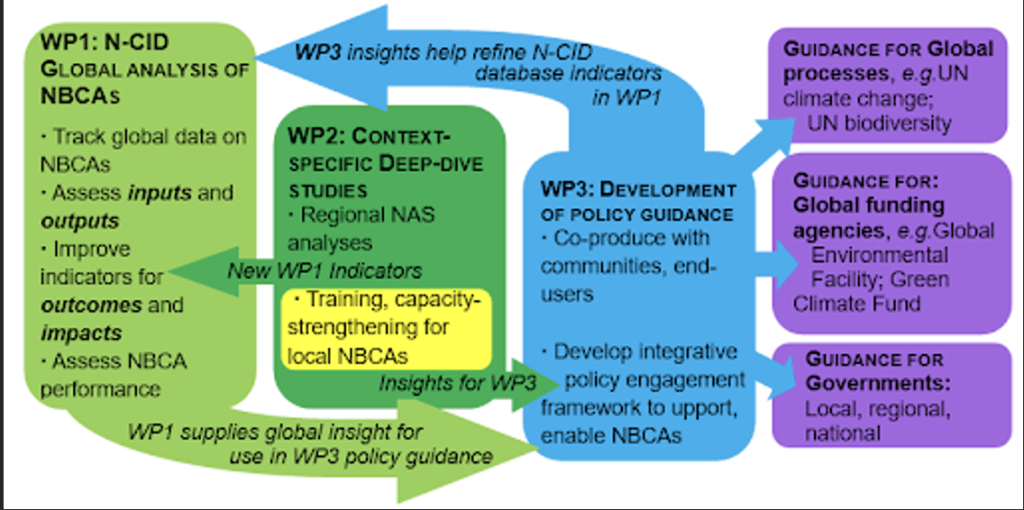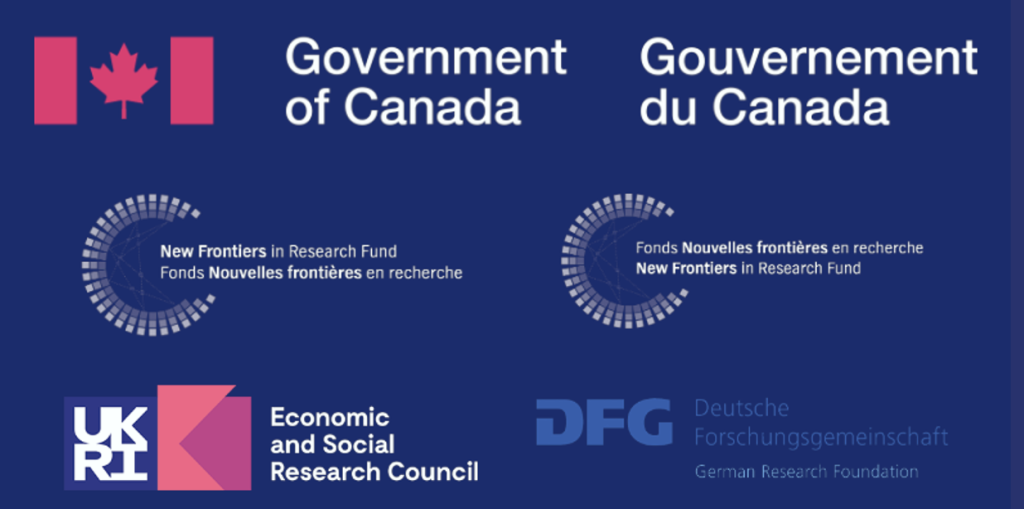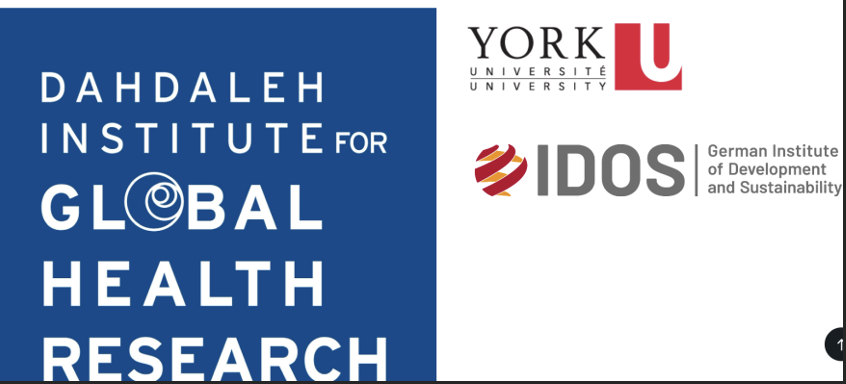Climate change accelerates biodiversity decline and biodiversity loss intensifies climate breakdown. Current national commitments under the Paris Agreement and the Kunming-Montreal Biodiversity Framework do not live up to these challenges. Nature-based Climate Action (NBCA) is a multi-actor, cross-sectoral collaborative commitments that integrate nature and biodiversity considerations within climate mitigation and adaptation strategies. NBCAs have the potential to complement national commitments while responding to climate change-induced risks to (i) terrestrial and ecosystems, (ii) living standards and (iii) human health.
The overall objective of the BioCAM4 consortium project is to develop methodologies for mapping NBCA trends worldwide and assessing local opportunities and challenges through deep-dive studies in two biodiversity hot-spot world regions: East Africa and Central America, where vulnerable groups and communities are among the most affected by climate impacts, least responsible for it, and have reduced adaptive capacity due to social and economic fragility.
The BioCAM4 Vision
BioCAM4 is an interdisciplinary and trans-sectoral research partnership dedicated to:
- Developing methodologies for mapping NBCA trends worldwide and assessing local opportunities and challenges for NBCAs with dedicated deep-dive studies in two world regions: East Africa and Central America.
- Engaging practitioners from local farming and tourism sectors and stakeholders from local governments and communities in the selected focus areas. On-site workshops and webinars will engage global institutions for policy recommendations, e.g., the UNFCCC, CBD, and global funding agencies while strengthening local capacity.
- Fostering leadership in the Global South and research collaboration through our focus areas in Africa and Central America.
The Objectives of the BioCAM4 Project
The consortium engages in research co-creation and policy outreach at global and local levels to strengthen the capacity of NBCAs.
BioCAM4 consortium project pursues three specific objectives:
- A comprehensive global mapping and analysis of NBCAs and an open-access database to offer insights on global NBCA distribution, patterns, and performance. Understanding global trends will inform global climate change and biodiversity processes.
- Context-specific and locally relevant exploration of local dynamics of NBCAs in four localities across two regions that are highly biodiverse: Virunga and Lake Victoria regions in East Africa, and Trifinio and Brunca regions in Central America. We uncover how biophysical, cultural, and institutional factors affect community action for implementing NBCAs, understand action situations and actor interactions therein, and their outputs, outcomes, and impacts to inform performance assessments at the global level and provide evidence-based, justice-driven insights for multi-level policy guidance.
- Co-creation of knowledge mobilization and policy outreach to translate research insights into policy guidance for equitable funding flows and resources that strengthen the capacity of local actors to design, implement, and maintain effective and inclusive NBCAs in the project’s focus areas and worldwide.
The BioCAM4 Work Packages
BioCAMM4 project Integrates mixed, participatory methods with a custom interdisciplinary and trans-sectoral approach, BioCAM4 will achieve its overarching goal via three specific objectives through three research work packages:
Work Package One (WP-1): Work Package 1 is dedicated to the development of a comprehensive global mapping and analysis of NBCAs. The resulting open-access database will offer insights into global NBCA distribution, patterns, and performance.
The global mapping is dedicated to:
- reflect multi-actor collaboration
- align with global climate and biodiversity goals
- address local and regional climate and biodiversity risks to local ecosystems, human health, and livelihoods.
Based on open-science principles, this open-access repository aims to map NBCAs to identify gaps and imbalances, and understand inclusivity factors, by discerning elements that foster or impede NBCAs from WP2. Its goal is to monitor and track performance patterns, by tracing growth trends, geographical disparities, and participatory dynamics. The N-CID will be vital for monitoring NBCAs’ efficacy by gauging whether NBCA commitments fulfill their promises for implementation of the Paris Climate Agreement and Global Biodiversity Framework. Initial work setting the foundation of N-CID has been done.
Work Package Two (WP-2): Context-specific exploration of action situations for NBCAs in focus areas in the Global South. We will complement the global analysis with deep-dive studies that engage stakeholders and communities in four countries: Rwanda (Virunga region) and Kenya (Lake Victoria region) in East Africa, Costa Rica (Brunca region) and Guatemala (Trifinio Region) in Central America. The vulnerable groups for BioCAM4 are communities surrounding conservation and restoration sites in the above regional focus areas. We understand vulnerability in terms of exposure, sensitivity, and adaptive capacity. The communities in the focus areas are among the most affected by climate impacts, least responsible for it, and have reduced adaptive capacity due to social-economic fragility. We will explore existing and potential NBCAs in focus areas, identifying facilitating and hindering factors, to understand their outputs, outcomes, and impacts. Participatory design with practitioners, social scientists, vulnerable populations, and local and regional research end-users in our focus areas will engage local actors to implement effective and inclusive NBCAs while providing bottom-up insights for improving indicators for tracking outcomes and impacts for the global database. Ethicists and biologists will support the integration of justice principles and sound conservation science and social science perspectives with attention to local relevance.
Work Package Three (WP-3): Research translation and policy guidance: Leveraging community-based and international partnerships, science-policy specialists with expertise in biology, political science, and science diplomacy will translate research insights from both global and local analyses into actionable recommendations for growing and scaling up NBCAs. These recommendations will guide implementers (local authorities, governments, UN Climate Change, and UN Biodiversity processes) and global funders (Global Environment Facility, Green Climate Fund) to direct funding and resources effectively toward NBCAs and enhance capacity at the community level.

Project Beneficiaries
- Local Stakeholders Indigenous Peoples: Primary beneficiaries in focus areas: Data, training, capacity-strengthening, network and outreach.
- Local and regional governments: Actors in NBCA or regulations in focus areas and worldwide: Data, training, capacity-strengthening
- Global Funding Agencies:e.g GEF, GCF: Data and recommendations for decisions
- National Governments: Government departments: Data framework to scale up, create, enable, and strengthen capacity for NBCAs.
- Intergovernmental Institutions: e.g UNFCCC, CBD, IPCC, IPBES: Data Insights for programs and mobilize.
- Data Community:e.g CAMDA: Data and methodologies for monitoring progress
Project Outcomes
- Capacity-strengthening and training: Early career researcher training; co-created framework for just, effective locally relevant NBCAs in focus areas and beyond.
- Recommendations and Policy guidance: co-created recommendations for global funders and institutions to help them make better decisions to channel funding to local actors.
- Reduced greenwashing: principles and data-driven assessment mechanisms for effective NBCAs grounded in sound science, inclusivity, and equity.
- Visibility/Recognition: Good practices of credible NBCAs by local actors and Indigenous people are shared for replicability, scaling-up, and recognition.
Project Impacts
- Climate and Environmental: Advancement of Global adaptation and mitigation goals and sustainable development goals through research
- Scientific: Advancement of collaboration across social sciences, humanities, biological sciences, and communities of policy and practice.
- Societal: Buy-in for practices that align biodiversity and climate goals while improving livelihood and human health outcomes in focus areas.
- Policy-related: Integration of NBCAs in climate policy and funding agencies in focus areas and worldwide.
- Economic: Contribution to thriving communities through capacity strengthening.
Funding
BioCAM4 is supported in part by funding from the Government of Canada’s New Frontiers in Research Fund (NFRF)

Project Partners

Consortium Partners

Project Team at ARIN
- Co-Principal Investigator: Dr Joanes Atela
- Project Lead: Dr Humphrey Agevi
- Research Scientist: Emily Bolo

